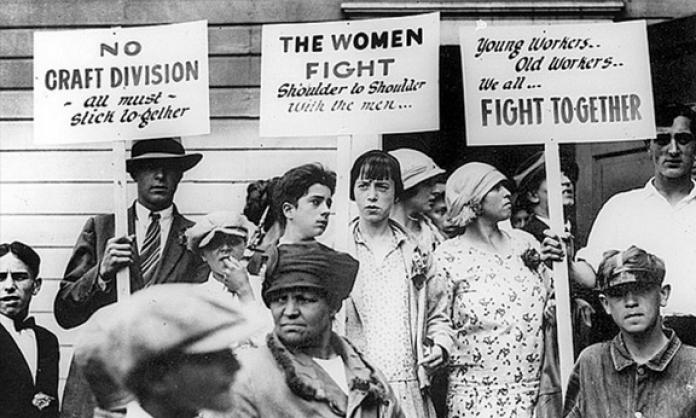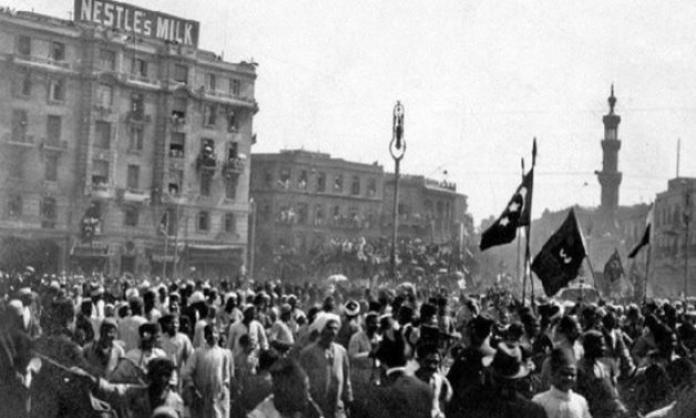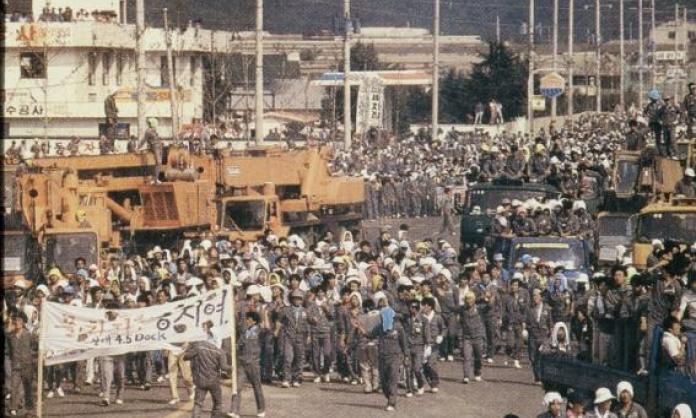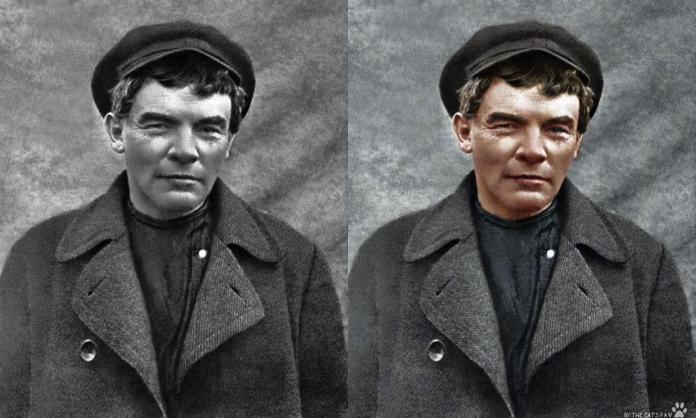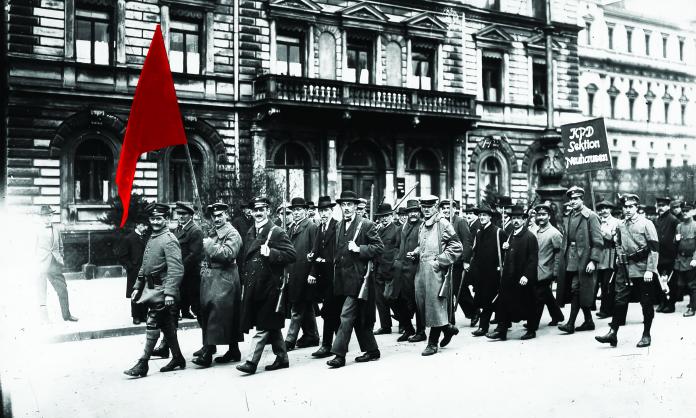The struggle against oppression has been the driving force of history and social development. Far from submitting meekly to their lot, human beings have resisted inequality and oppression from the earliest days of class society.
But resistance alone is no guarantee of success. Oppression, whether on the basis of class, race, gender, sexuality, nationality, religion or a range of other things, has proven to be an enduring and intractable feature of class societies, even in the face of heroic opposition. For liberation to be achieved, the economic and social roots of oppression must be destroyed. As Marx and Engels put it more than 150 years ago, what is required is the “revolutionary reconstitution of society at large”.
This reality informs both what should be the ultimate goal of any struggle against oppression, and the strategic orientation needed to win immediate demands.
Capitalism a system of oppression
Marxists support all acts of resistance against oppression. We are for fighting to advance democratic rights and freedom for the oppressed as much as is possible within capitalist society.
In some cases – where particular forms of historically specific oppression no longer aid capital accumulation or have become politically redundant – oppression can be eliminated within the limits of capitalism. But this does not do away with it in general. Instead, old forms of oppression have simply been superseded by new ones.
The oppression of German-Australians, for example, so intense during World War One, clearly no longer exists today. Nor does the oppression of Irish Catholics, which was at one time a central feature of Australian society. But this does not mean that racial or national oppression has been overcome. Instead, new and different groups have been singled out to bear the brunt of capitalism’s divide and rule imperative, such as Asians, Muslims and refugees.
In fact, the tendency of capitalism has been to expand and intensify oppression, not phase it out. Capitalism has given rise to a greater number and more savage forms of oppression than any previous class society, virtually all of which are indispensable to the economic and social functioning of the system.
This has caused much suffering and misery. But it has also generated resistance. More often than not, resistance begins in response to particular manifestations of oppression that, for whatever reason, become more than people are willing to bear. Resistance might take the form of protests, riots or smaller shows of defiance. Whatever they are, such acts have the potential to kick off a process of political struggle.
This process tends to exacerbate and bring to the surface the antagonisms that underlie the putative “freedom” and “equality” of capitalist society. It has the potential to highlight both the weakness of the powerful and the strength of the oppressed, bringing into question many of the ideas and assumptions that capitalism depends on to maintain its dominance. And it starts to forge bonds of solidarity between the oppressed and their allies in the struggle.
Whether it is women fighting for equal pay, LGBTI people declaring their pride in defiance of bigots or Aboriginal people defending their rights against mining companies, the dynamic is similar.
Sometimes, such action can win immediate concessions. More often, the powerful attempt to demoralise and cow their challengers. At some point, the question of how the oppressed can win comes to the fore. Because struggles that don’t win are ultimately thrown backward, an orientation to a source of social power that can deliver victory is vital for any movement against oppression.
This is where the question of a broader view of social change comes in – an “agenda” as it is so frequently derided by conservatives and those looking to stoke disorientation and fragmentation on our side.
Marxists argue that far from being a negative, a political agenda for the oppressed is a vital necessity. Any framework seeking liberation needs to recognise the role of the working class as the key element in struggles, both for reform and in bringing about revolutionary change.
The working class
There are many oppressed groups, but only one has the power to bring about the revolutionary reconstitution of society. Only the working class, which exists both in its own terms and as a large constituent of all oppressed groups, has both an interest in and the economic power to bring to their knees those responsible for all forms of oppression.
The economic power of workers stems from the position they occupy in relation to production. Workers are responsible for producing everything that is needed to keep society functioning, from food and medicine to electricity and transport. But they do not, under capitalism, have the right to determine how resources are used or organised. Rather, the tiny elite of wealthy bosses who own or run the factories, offices, mines and corporations call the shots, and do so in the interests of further wealth accumulation. This situation lasts only so long as workers accept the authority of these bosses, or are intimidated by the threat of the sack or legal sanctions.
When workers take collective action in pursuit of their rights, they can become keenly aware of the power they hold, as alluded to by the famous slogan of the Parisian struggles of 1968, Le patron a besoin de toi. Tu n’as pas besoin de lui (The boss needs you. You don’t need the boss).
Industrial action by workers is the key act of resistance that strikes at the heart of the capitalist economy, and that rattles the political machine that administers it. When workers collectively assert their control over production, whether through slowdowns, stop-works or strikes, the exploitative nature of production becomes more clear, as does the parasitic role of the employers.
What’s more, workers flexing their industrial muscle point toward an entirely new form of social organisation, one based on mass democratic control by workers over society’s wealth and productive capacity – a society in which mass participatory democracy could be the norm, not just a peculiarity borne of industrial struggle.
This is the basis for a world without oppression.
A society run democratically by workers, and not for profit by the bosses, would have no cause to oppress any group (except the old rulers insofar as they fight to regain power).
Its concern would only be ensuring that enough is produced to meet people’s needs and maximise living standards. Making people work longer hours for less, forcing particular sections of the workforce to accept inferior conditions, amassing destructive militaries to pursue economic domination at any cost: none of these would make sense.
The competition that permeates capitalism and demands ever more savage attacks on workers, social services and people’s rights would become nonsense in a world in which workers cooperated across national borders to meet their needs based on the democratic distribution of the wealth that they collectively create.
This is not to suggest that workers are more morally deserving than other oppressed groups, or that they necessarily suffer the greatest injustices. Nor is it to imply that workers are conscious of their power or their interest in eliminating all forms of oppression, and that they therefore reject all forms of bigotry. Often this is not the case at all. Rather, it is an argument about where power lies in capitalist society and the objective interest born from a collective social position of workers, which creates the material basis for the liberation of all the oppressed.
The experience of struggle
This has been borne out historically in various struggles against oppression.
It is reflected in the fact that the workers’ movement has frequently been willing to fight for or champion the cause of the oppressed well in advance of the rest of society.
It was primarily the union movement, for example, that took up the fight for equal pay for women in the 1960s, a campaign that brought about a landmark legal victory. Importantly, male-dominated unions, such as the Amalgamated Engineering Union, led the charge, reflecting their advanced class consciousness and hostility to the powers that be.
Likewise, the union movement got behind strikes by Aboriginal stockmen in the 1960s, leading to some of the earliest demands for land rights. It also backed campaigns to protect urban green spaces before any government or developer recognised their value.
But history since the high point of the late 1960s also demonstrates the limits of what can be achieved without an escalation of the struggle into a broader challenge to the system.
The women’s and gay liberation movements, as well as the struggle for Aboriginal rights, achieved profound changes both legally and ideologically. The strength of the workers’ movement at the time was crucial for these, and it was crucial for advancing the interests of all workers and pushing people’s need to the forefront of politics rather than “productivity” and “efficiency”, which dominate today.
But this period of upswing for our side did not ultimately challenge capitalism. The bosses’ control over production was never threatened, alternative sources of democratic control by workers were not formed, and the mass of the oppressed remained relatively passive – which is why today, more than 40 years later, oppression endures.
As Marx and Engels contended, the struggle can end successfully only with the revolutionary reconstitution of society at large.
So while women have been able to advance more readily up the social and corporate ladder since the 1960s, they do so at the expense of the working class women they employ and exploit – the low-paid women who clean for them and those who mind their children for a pittance, for example. And when in positions of power, they support regressive social policies that deny other women adequate services and maternity leave. They become part of the oppressing class.
Oppression also endures because gains are rolled back when our side is forced into retreat. That’s why land rights never became a reality for Aboriginal people, and why dispossession and child theft continue. As long as capitalism remains, hard-won reforms are never guaranteed.
Fault lines amongst the oppressed
An orientation to the working class is not readily adopted by many people involved in struggles against oppression. This reflects in part the very important political differentiation that characterises most oppressed groups. There are always some – women CEOs, bigwigs in the pink economy or well-paid bureaucrats in dedicated government departments, for example – who have a vested interest in maintaining the structures of capitalism, even though they themselves are part of oppressed groups.
Still others can feel that an orientation to the workers’ movement adds an element of disrepute to movements challenging bigotry, which risks alienating the rich and powerful and thus compromises the possibility of personal advancement within the system. And then there are those who have no sympathy for those challenging oppression at all, either because they have made their peace with the system or simply because they hold reactionary political views.
Such layers create a pressure on struggles to accommodate to the status quo and, inevitably, accept the continuation of oppression in some form.
Socialists argue that it is therefore necessary to build within these movements a current of people committed to a radical approach – one that does not take as its goal achieving compromise or half measures aimed at placating the rich and powerful, but that aims to win full liberation.
Revolution won’t bring liberation overnight
A common riposte to the socialist strategy for fighting oppression is that we simplistically assume that revolution will eliminate it overnight. This is not the case.
For one, revolutions do not happen in one night. They involve an extended process of politicisation, organisation and social turmoil that progresses through various stages as workers come to challenge the power of their rulers.
This process inevitably involves workers coming into conflict with the ideas and structures that underpin oppression. For workers to win, these must be overcome, because they serve the interests of the capitalist class and are crucial to the maintenance of their rule. Backward ideas are challenged in the course of a successful revolution, as are the laws, customs, working arrangements and domestic practices related to them.
It would be naive to assume that mass attitudes will simply fall into line behind this new social reality. Some will take longer to adjust than others, just as a minority of people today continue to decry the advances of the 1960s and 1970s. But once the oppressive social structures are done away with, such ideas and attitudes will increasingly jar with social reality, to the point that they can no longer be sustained.
Hostility towards refugees, for instance, would eventually be impossible to maintain in a society in which they were indistinguishable from the general population: that is, one in which detention centres didn’t exist, non-residents weren’t discriminated against and a hysterical fuss wasn’t made about people arriving in the country by boat. In these conditions, anti-refugee sentiments would eventually become nonsense, nothing more than a vestige of a bygone era, and those who clung to them a novelty.
A world to win
If oppression could be overcome by effective advocacy or orderly protest action by those affected, then there would be no need for a broader analysis of oppression or a political strategy for combating it. But history demonstrates that the powerful will not relent that easily.
To ignore the question of which ideas and political approaches best equip the oppressed to fight for their rights is an abrogation of responsibility and a sure recipe for defeat. An approach that starts with an understanding of how all forms of oppression are intimately tied to the economic and political prerogatives of capitalism is therefore essential, both in order to more successfully wage struggles for immediate demands and in order to understand what is needed to end oppression for good.




